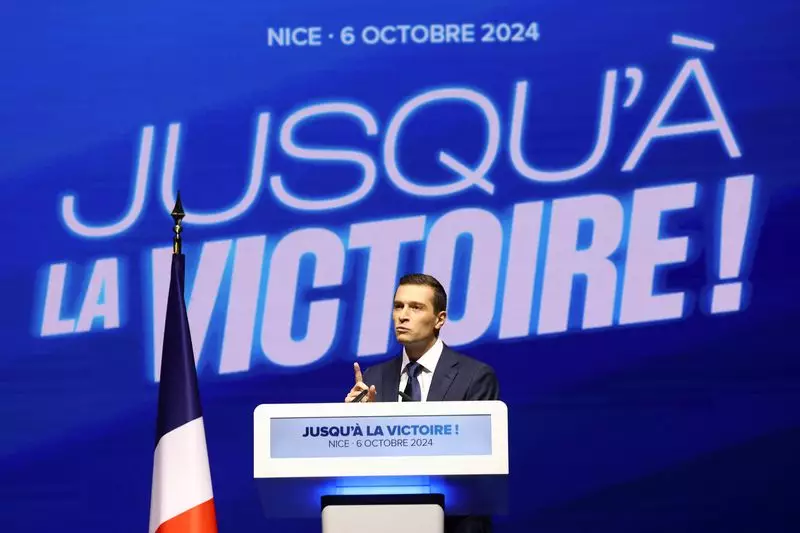In an escalating confrontation that could reshape France’s political landscape, the far-right National Rally (RN) party has signaled a willingness to back a no-confidence motion against Prime Minister Michel Barnier’s administration. A statement from RN president Jordan Bardella reveals that the far-right faction is growing increasingly impatient, demanding significant changes to the government’s budget proposals. Unless a miraculous resolution occurs, Bardella asserts that the RN will leverage its parliamentary power to challenge the government’s stability.
At the heart of the RN’s demands is a push for pension reforms that align with rising inflation rates, a move that contrasts sharply with Barnier’s strategy of modest pension adjustments aimed at fiscal restraint. This divergence highlights the tensions simmering within the French political scene, exacerbated further by Barnier’s recent decision to rescind a planned increase on electricity taxes—a move designed to ease public ire but deemed insufficient by the RN. Their calls extend to canceling proposed cuts to medication reimbursements and opposing an increase in tax on gas—all issues that resonate deeply with the electorate amid France’s current economic troubles.
The looming potential for a no-confidence vote has raised the stakes within the legislative arena as the government faces pressure from multiple fronts. If Barnier resorts to exercising his constitutional powers to push critical financing bills through Parliament, it risks igniting a conflagration of opposition—from both the left and far-right factions. With political tension escalating, a clash is on the horizon that could redefine alliances in the National Assembly, especially with governmental stalwarts feeling cornered by RN’s assertive tactics.
As discussions about the nation’s financial health persist, government spokesperson Maud Bregeon has acknowledged the perilous situation facing the French economy. With uncertainty swirling around budgetary decisions, the fears are palpable regarding the implications for business investments and national stability. Bregeon articulates a sentiment experienced nationwide—if France cannot present a coherent budget, the risks of economic regression could deter both domestic and foreign investments.
Within this chaotic environment, the French government, while firm in its position, professes openness to dialogue and negotiation. However, the deepening divisions pose significant obstacles to constructive conversations, leaving the government grappling with how to unify disparate political factions. Experts like Pierre Moscovici, director of France’s public audit office, have sounded alarms about the country’s precarious financial standing, emphasizing the urgent need for resolution to avert economic disaster.
As this political drama unfolds, it underscores the tension between fiscal responsibility and public expectation. The potential for a no-confidence motion signals a critical juncture for Barnier’s government, one that could either solidify or jeopardize its standing in the eyes of the French populace. The decisions made in the coming days will not only determine the fate of Barnier’s administration but also shape the trajectory of France’s economic and political future amid an atmosphere rife with uncertainty.

